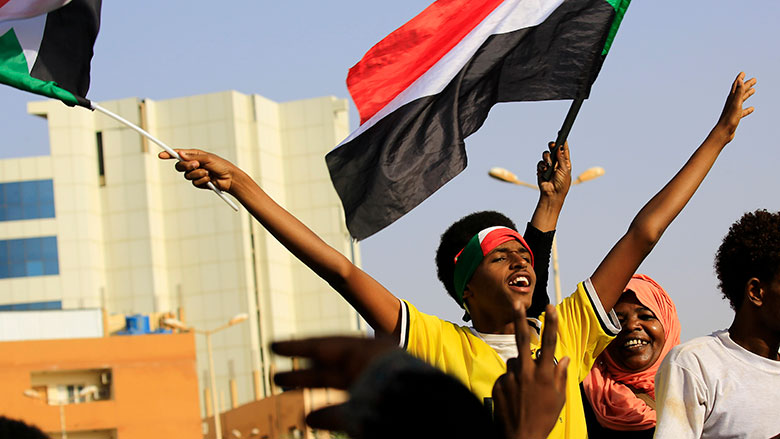WASHINGTON, March 29, 2021—In the Republic of Sudan, the government and its people are leaving behind decades of economic, social, and political decline. After years of international isolation and embargoes limiting access to development financing, the country has cleared its arrears with the International Development Association (IDA), enabling its full reengagement with the World Bank Group after nearly three decades, and opening the door to nearly $2 billion in new financing.
“This is a huge milestone that Sudan has been working hard toward, and we have been with them every step of the way,” said Ousmane Dione, World Bank Country Director for Eritrea, Ethiopia, South Sudan and Sudan. “Now we will be able to fully support the Sudanese people with all of the financing tools at our disposal at a time when it’s most needed.”
This arrears clearance comes as the country is facing considerable economic hardships, exacerbated by the COVID-19 (coronavirus) pandemic, with more than 31,000 confirmed COVID-19 cases, and more than 1,900 fatalities. Previously a lower-middle income country, Sudan was reclassified to low-income country status in July 2020 due to economic deterioration over the last decade. The economic situation has worsened significantly over the past three years, with economic challenges intertwined with a historically fragile social contract characterized by violent conflict, long-standing tension between the center and the periphery, and exclusionary governance.
But despite its many challenges, the country’s transitional government—left with significant debt from the previous government—committed to making significant reforms, with the support of the international community and the country’s major political forces. Priorities include brokering the promised peace deal to overcome internal conflict and form a broad-based government of national unity, holding free and fair elections, and undertaking much-needed economic reforms to reverse decades of economic, social and political distortions that have impoverished a country that had ample resources.
“These necessary reforms to put Sudan’s economy and public finances on a sustainable path would be tough under any circumstances,” said Milena Stefanova, World Bank Country Manager for Sudan. “It was even more extraordinary to carry them out while facing record flooding, locusts, the COVID-19 pandemic, and refugees inflow. I salute the government and the people of Sudan for their courage in moving rapidly on these reforms.”


